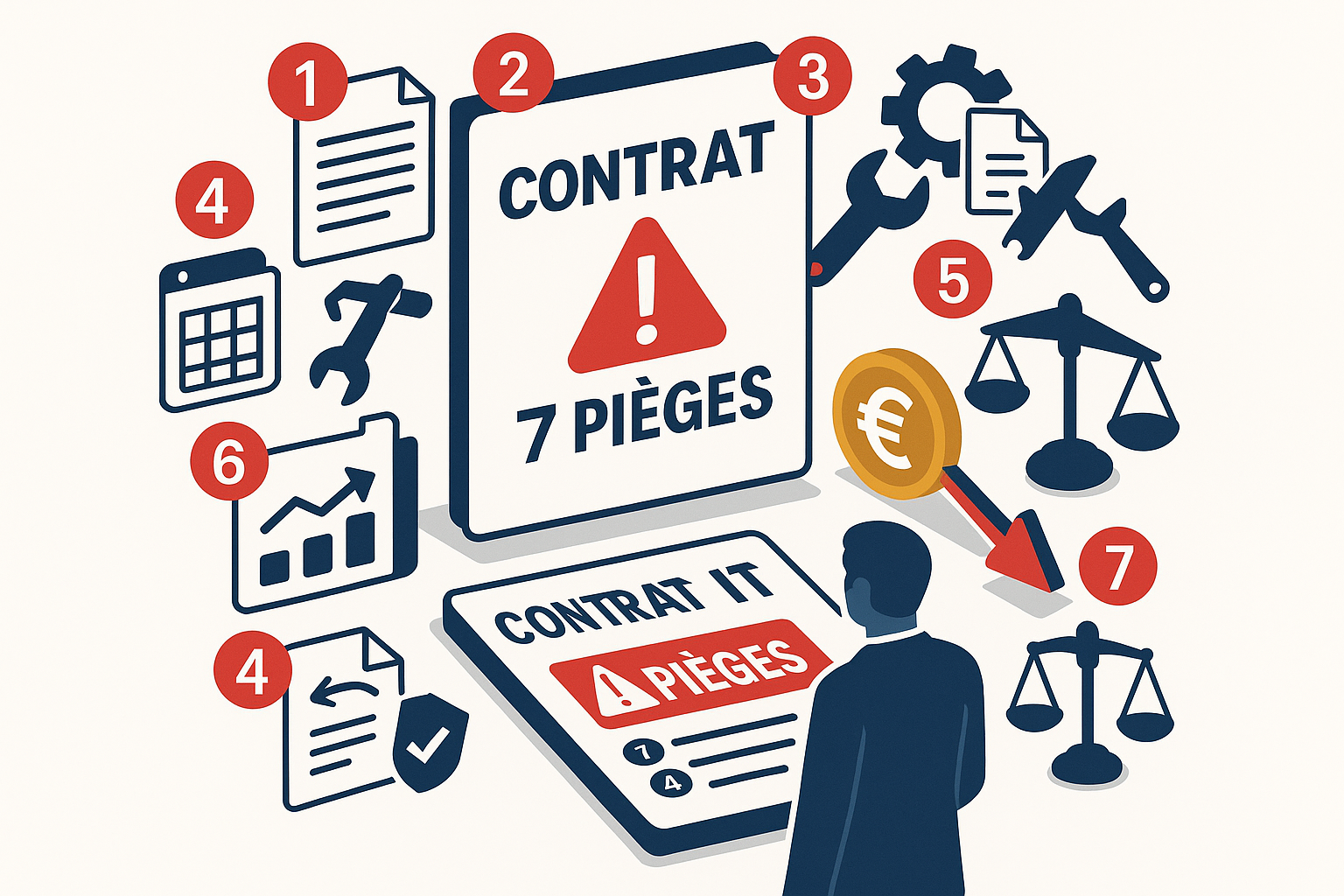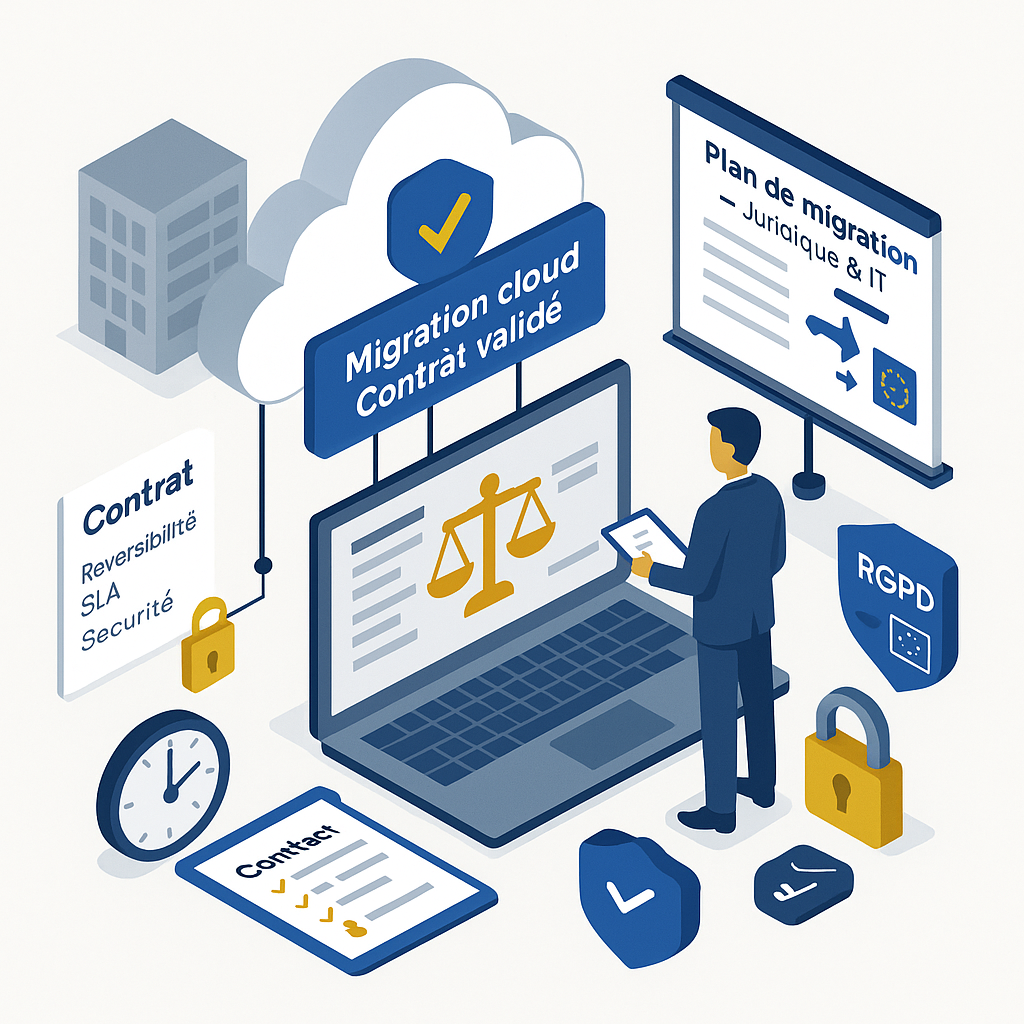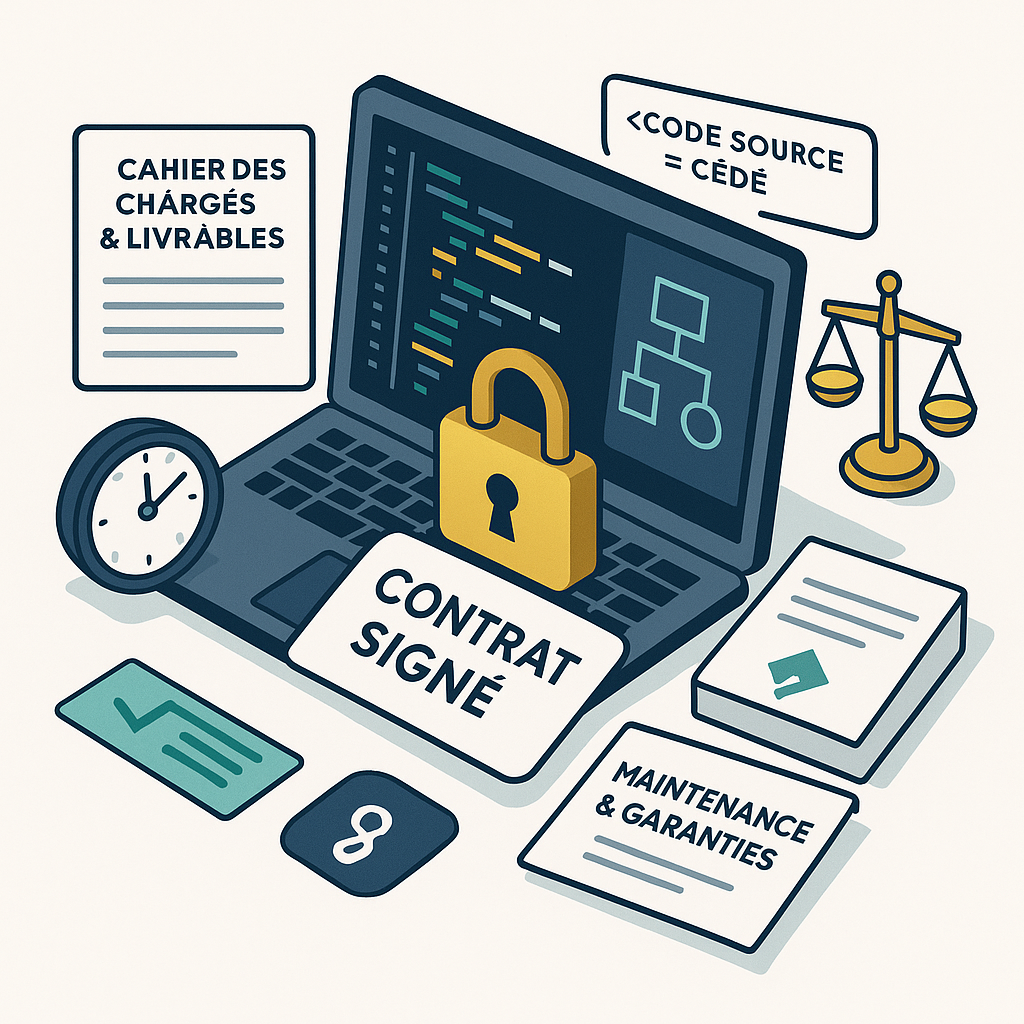
Contrats de prestation informatique : 7 pièges qui peuvent coûter cher à votre entreprise
Les contrats de prestation informatique recèlent souvent des pièges qui peuvent entraîner des conséquences considérables.
An effective IT contract strategy ensures clarity of rights and obligations, minimizes legal risks and supports the smooth operation and growth of your business in the digital age.

IT contracts are essential for establishing clear and secure relationships between companies and their technology partners.
They cover a wide range of aspects, from the supply of IT services and products to the protection and use of software creations(RGPD, intellectual property, cybersecurity, etc.), while also containing classic commercial law stipulations (liability, transfer of ownership, etc.).

As an IT contract lawyer, I carry out an in-depth analysis of your IT contract needs to identify the specifics of your operations and business relationships.
This methodical assessment includes a review of your current agreements, negotiation practices, and long-term objectives, with a view to providing a detailed report and tailored recommendations for optimizing your IT contracts.

Following the assessment, I'll draw up a personalized action plan to improve and strengthen your IT agreements.
This includes reviewing and updating your existing contracts, negotiating new agreements, and creating standard documents to streamline your contractual processes.
Specific actions that can be taken :
- Negotiating and drafting IT service contracts
- Creation of contract templates for day-to-day transactions
- Advice on service level agreements (SLAs) and software licenses

IT contracts can be complex and require a precise understanding.
I offer training and awareness sessions for your teams, helping them to navigate the world of IT agreements and manage them effectively and compliantly.

Managing IT contracts requires constant attention. I offer you regular legal monitoring to keep you abreast of legal developments and industry best practices.
Periodic audits can also be carried out to ensure that your contracts remain up to date and aligned with your company's objectives.
The management of IT contracts, encompassing aspects such as software development agreements, licenses and service contracts, presents significant legal and financial risks for companies.
Sanctions or claims for damages can arise from several sources:
It is essential to be accompanied by a lawyer specializing in IT contracts.

Les contrats de prestation informatique recèlent souvent des pièges qui peuvent entraîner des conséquences considérables.

Décryptons ensemble les points d’attention essentiels pour sécuriser juridiquement votre projet de migration vers le

Le développement d’un logiciel sur mesure représente un investissement stratégique majeur pour une entreprise. Au-delà
IT contracts can be categorized into several types, each responding to specific IT needs.
Among the most common are :
Each type of contract addresses specific legal aspects such as rights of use, maintenance obligations and warranties.
An IT contract is a legal agreement between two parties, usually between a supplier of IT services or products and a customer.
This type of contract covers a wide range of arrangements, from the creation and licensing of software to the provision of IT services such as development, maintenance, cloud computing and consulting.
These contracts define the terms and conditions under which services or products are provided, including issues of intellectual property, confidentiality, liability and compliance with standards and regulations.
They are essential to clarify the expectations and obligations of each party, and to provide a legal framework in the event of a dispute, by being accompanied by an IT contract lawyer.
The purpose of an IT contract depends on the specific nature of the agreement.
These may include the creation and delivery of customized software, the supply of software licenses, maintenance and technical support services, or the provision of cloud computing and IT consulting services.
The contract precisely defines the scope of the services or products supplied, including technical specifications, deadlines, payment terms, quality and performance obligations, and provisions in the event of non-compliance or default.
The aim is to establish a clear, mutual understanding of expectations, guaranteeing successful collaboration and minimizing the risk of conflict.
An IT services contract is an agreement in which a supplier undertakes to provide specific IT services to a customer.
These services can include software development, maintenance and technical support, IT infrastructure management, data security, and information systems consulting.
This type of contract details the terms of the service, such as scope of services, deadlines, quality criteria, rates, as well as the responsibilities and obligations of both parties. It also covers confidentiality and data protection, essential in the IT sector.
This contract is crucial to ensure that services are delivered according to expectations and to protect the legal interests of both parties.